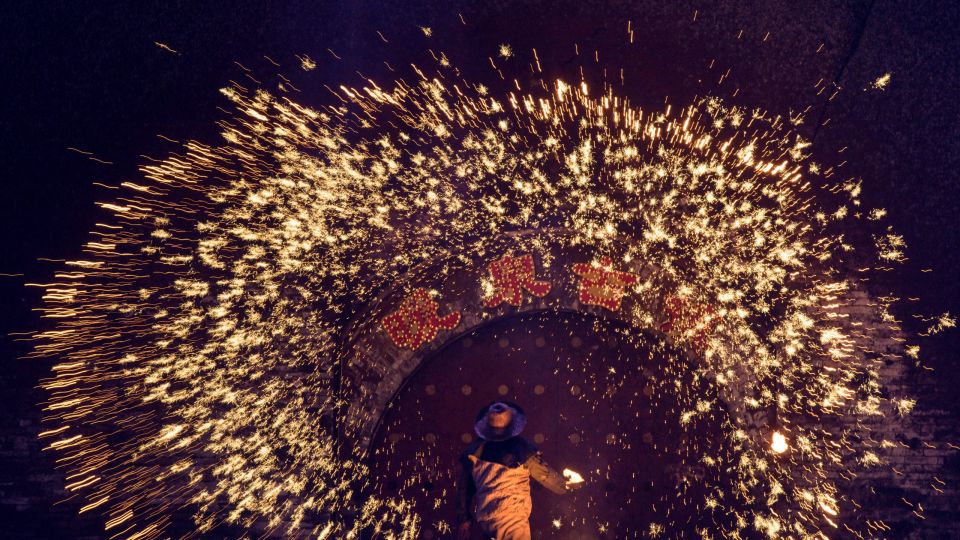February 16, 2018
With Chinese New Year fast approaching, preparations for China’s most important annual festival are in full swing across the country.
A nation-wide scramble to reunite with family members is already well underway, with millions of people hopping on planes, trains and cars to make long journeys back to their hometowns.
Known in Mandarin as chunyun, the travel rush is an annual occurrence in China.
Chinese New Year, also known as the Spring Festival, falls on February 16, marking the start of the year of the dog. The 15-day celebration is a time of reunion. Central to the festivities is the reunion dinner, which takes place on the eve of Chinese New Year, an event many Chinese are willing to travel vast distances to attend.
Between Feb 1 and March 12, more than three billion trips are expected to be made as a tide of students and workers leave the country’s major cities for the cities and villages their families call home, according to CGTN. With hundreds of millions of travellers, it is the world’s largest annual human migration.
Aside from the hustle and bustle of travellers heading home, neighbourhoods, decorated with red lanterns, also reflect the festive mood.
Many houses, too, will be readied for the celebration. Festive pictures will be placed on the walls, and couplets will be pasted on either side of the front door.
Comprising two complimentary lines of poetry adhering to certain rules, the couplets are one of the most common and important traditions, according to China Daily.
They are no longer restricted to the Chinese language either, with English language couplets gaining popularity among young Chinese people.
On China’s biggest consumer online shopping platform Taobao, dozens of shops are selling English couplets, China Daily reported.
“Most of our buyers are young people who want to look cool and are willing to pay extra for fashionable things,” Beijing shop owner Yu Runrun told China Daily, adding that some send the couplets to foreign friends as gifts.
“Foreigners in China also buy the English couplets to celebrate the festival,” Yu said.
Festive Foods
No festival is complete without the food and Chinese New Year is no exception, with a whole host of symbolic meals and snacks to enjoy.
Dumplings are likely to be on the menu in Northern households. With a shape similar to that of a gold ingot in ancient China, eating dumplings is supposed to symbolise a wish for treasure and good fortune, China Daily reports.
Rice cakes are another festival favourite. Gold and white rice cakes represent gold and silver, while gao, the Chinese character for cake, sounds the same as another character meaning growth, improvement or greater accomplishment, according to China Daily.
Long noodles symbolise the string of life and longevity, as well as wealth due to their resemblance of the strings strings holding copper coins together in ancient China.
The humble soybean sprout is an important food at family reunion banquets in Shanghai and East China’s Jiangsu province, symbolising growth and promotion, according to China Daily.
Fish and chicken are also two must-haves, symbolising happiness and good fortune.
Preparations and Celebrations
With a history spanning thousands of years, the festival has spawned many traditions, which vary from region to region.
Common traditions include visiting family and friends and giving out red envelopes, or hongbao, which contain money and are considered lucky. People may also catch popular traditional performances such as Lion and Dragon dances.
Setting off fire crackers and fireworks is an important part of Chinese New Year celebrations, but their use has been banned and restricted in many major cities due to concerns about safety and pollution.
For those hoping to experience the local culture, a visit to one of Beijing’s many temple fairs is the perfect way to enjoy performances, traditional arts and crafts and sample some local food. These typically open on the first day of the lunar new year and continue until the lantern festival, according to China Highlights.
One of many temple fairs in Beijing, the Ditan Temple Fair will thrill crowds with re-enactments of the traditional Qing Dynasty ceremony to worship the God of Earth, a folk flower fair, Hebei acrobatics and more, the China daily reported.
Foodies will not be disappointed, with snacks from all around China available at the fair, including Tianjin fried dough twist and Shandong pancake.
The Longtan Temple Fair has some interesting entertainment lined up with its 30,000-square meter ice and snow theme park. There, visitors will get to ride ice bicycles and participate in other activities, reported China Daily.


